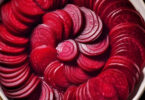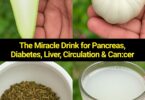Drooling during sleep is a common issue, but if it happens frequently or excessively, it might indicate an underlying condition. Here are six possible causes to consider:
1. Sleeping Position
- Cause: Lying on your side or stomach can lead to drooling, as gravity causes saliva to pool and escape from your mouth.
- Fix: Try sleeping on your back to encourage saliva to stay in your mouth and be swallowed.
2. Sinus or Respiratory Infections
- Cause: Congestion from colds, allergies, or sinus infections can force you to breathe through your mouth, increasing drooling.
- Fix: Treat the underlying infection or allergy; nasal decongestants or antihistamines may help.
3. Gastroesophageal Reflux Disease (GERD)
- Cause: GERD can increase saliva production as a reflex to acid irritation in the esophagus.
- Fix: Avoid eating late, elevate your head while sleeping, and consult a doctor for treatment.
4. Sleep Apnea
- Cause: Obstructive sleep apnea can cause open-mouth breathing and excessive salivation.
- Fix: This is a serious condition—get evaluated by a sleep specialist. A CPAP machine may be recommended.
5. Neurological Disorders
- Cause: Conditions like Parkinson’s disease, cerebral palsy, or stroke can impair muscle control, affecting swallowing and leading to drooling.
- Fix: If drooling is new or worsening and other symptoms are present, consult a neurologist.
6. Medication Side Effects
Continued on the next page
- Cause: Some drugs (especially antipsychotics, Alzheimer’s meds, or muscle relaxants) can increase saliva production or reduce your ability to swallow.
- Fix: Talk to your doctor about adjusting medications if drooling is bothersome.
When to See a Doctor
If drooling is excessive, new, or accompanied by other symptoms like difficulty swallowing, choking, or fatigue (from poor sleep), it’s a good idea to seek medical advice.
Would you like tips on how to reduce drooling naturally or treatments that doctors may recommend?
ADVERTISEMENT







